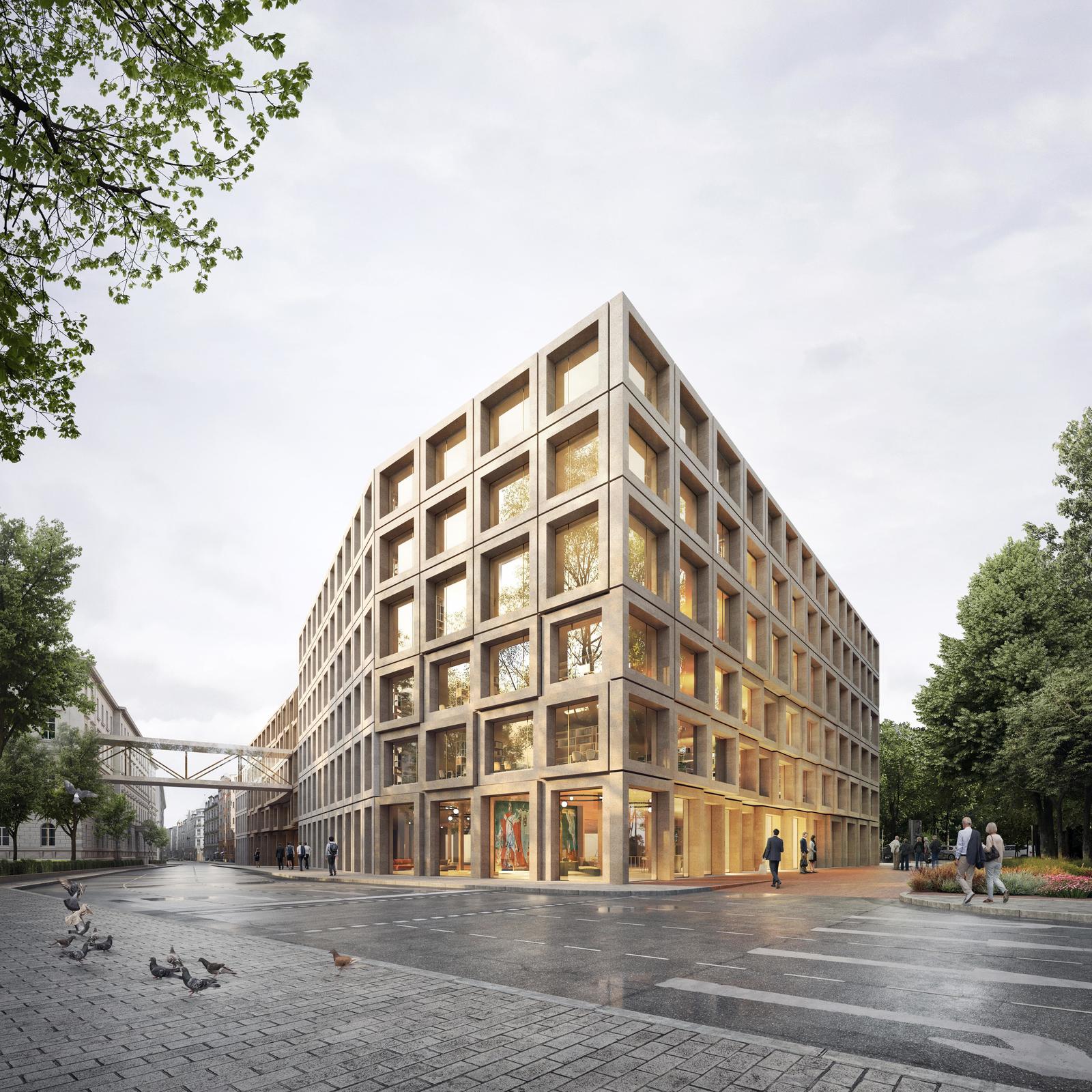2024
An important aspect of the Maximilianstraße in Munich is the listed heritage. Our design treats this with great respect, but at the same time conveys a contemporary and appropriate self-confidence. It integrates itself as a natural part of the urban fabric. The varying opening of the natural stone façade divides the structure over the floors and along the roadways. As a result, it gains clarity and is anchored as a building block in the urban space.
In the courtyard, the geometry follows a dynamic approach that forms its own amorphous figure in dialogue with the neighboring buildings. Here a lightness dominates, which is supported by extensive greenery both on the surfaces and on the facade. The result is an artificial, inner-city green space with a specific atmosphere and high quality of living not only for employees of the office space but also for residents. The ecologically high-quality green areas with newly planted trees form a place of tranquility with various retreat and recreation possibilities. The common areas are easily accessible thanks to the clear path connections to the building exits and entrances. A glimpse of the green courtyard all the way to the Maximilianstraße supports this and contributes to a uniformly exciting picture of the design. Thus, the “floating” courtyard can be perceived as a continuum, which through the “bridge-breaker” constructed in wood has an effect all the way to the road. A uniform flooring is regarded as an essential element of the identity and extends over the forecourt, foyer and courtyard, thus creating a link.
On the roofs of the building, intensive and extensive roof greenery creates another place of recreation, which can be used by employees to rest or work with seating. A drive of high biodiversity to maintain the balance in the ecosystem adds value to the roofs.
Parts of the roof are used for PV systems to generate a sustainable power supply. At the same time, retention roofs and a sponge city principle on the ground floor provide an efficient and sustainable way for rainwater management.
The entire design aims at a sustainable and attractive area in the city centre, which makes a significant contribution to improving the urban microclimate.




